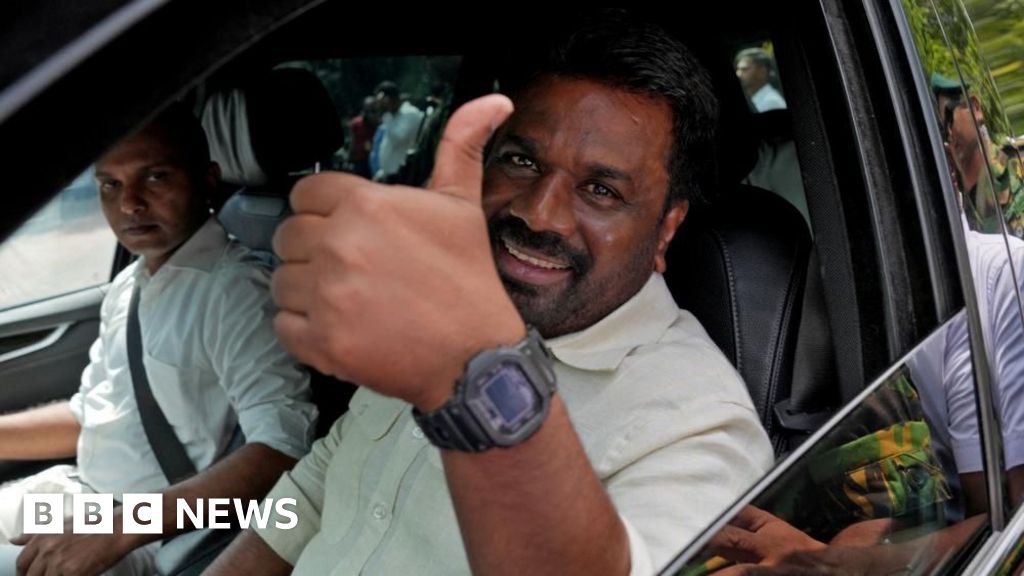The left-leaning alliance of Sri Lanka’s new chief has secured a landslide victory within the nation’s snap parliamentary elections.
Official outcomes present President Anura Kumara Dissanayake’s Nationwide Individuals’s Energy (NPP) coalition scored a two-thirds majority in parliament, with 159 seats.
President Dissanayake’s coalition bought almost 62% of the vote, successful even within the Tamil-dominated Jaffna Peninsula for the primary time since independence from Britain in 1948.
“Thanks to all who voted for a renaissance,” Dissanayake mentioned in a short assertion on social media platform X, beforehand is aware of as Twitter.
Correspondents say the victory has cemented a metamorphosis of the island-nation’s political panorama which for many years was dominated by established political events of household dynasties.
The landslide mandate will even permit him to push by financial and constitutional modifications he had promised throughout the marketing campaign.
Within the outgoing meeting, Dissanayake’s get together had simply three seats.
The 55-year-old earlier advised reporters that he believed this was “a vital election that may mark a turning level in Sri Lanka”.
Sajith Premadasa, the person Dissanayake defeated within the presidential elections, led the opposition alliance.
Dissanayake referred to as for snap elections shortly after he turned president to hunt a recent mandate to pursue his insurance policies. There was “no level persevering with with a parliament that’s not in step with what the folks need”, he had mentioned.
Practically two-thirds of former MPs had chosen to not run for re-election, together with distinguished members of the previous ruling Rajapaksa dynasty.
Out of the 225 seats within the parliament, 196 MPs had been instantly elected. The remainder had been nominated by events primarily based on the proportion of votes they get in what is named proportional illustration.
State of financial system was one of many key points for a lot of voters.
Excessive inflation, meals and gas shortages precipitated a political disaster in 2022 which led to the ousting of President Gotabaya Rajapaksa. His successor Ranil Wickremesinghe managed to barter a bailout bundle value $3bn with the Worldwide Financial Fund – however many Sri Lankans proceed to really feel financial hardship.
The variety of folks residing beneath the poverty line in Sri Lanka has risen to 25.9% prior to now 4 years. The World Financial institution expects the financial system to develop by solely 2.2% in 2024.
The coalition will now be underneath large strain to carry out and reside as much as their marketing campaign guarantees. Dissanayake has promised to repay the nation’s debt, reform its political tradition, and punish members of previous administrations for corruption.
Sri Lanka’s financial scenario stays precarious – and the primary focus continues to be on offering important items and companies. How the nation progresses from this level shall be an actual problem for the brand new authorities.
Further reporting by Kelly Ng
